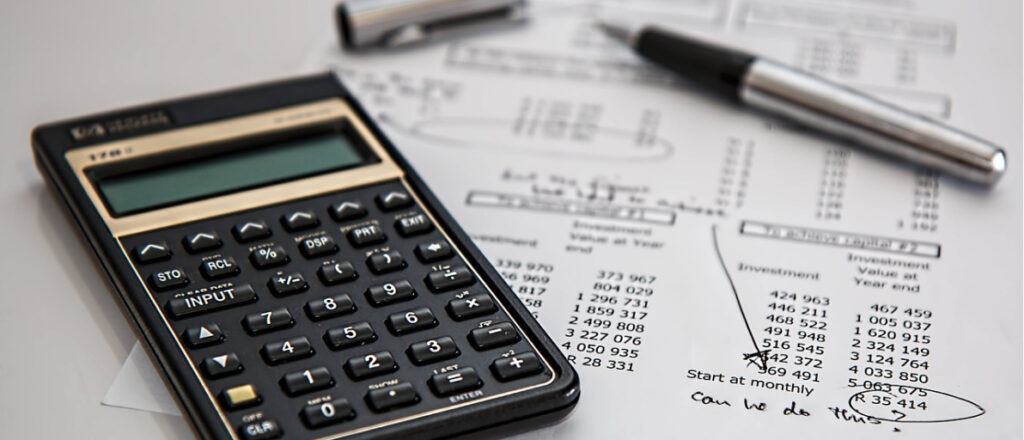The difference between bookkeeping and accounting for restaurants lies in their purpose and scope. Bookkeeping focuses on recording daily financial transactions such as sales, expenses, and payroll, while accounting interprets that data to create financial reports, analyze performance, and guide business decisions. Together, they ensure accurate records and smarter financial management in restaurants.
1. Introduction: Why Financial Clarity Matters in the Restaurant Industry
Running a restaurant involves juggling numerous financial responsibilities-tracking daily sales, managing vendor payments, monitoring inventory, handling payroll, and complying with tax laws. With so many moving parts, even small financial mistakes can create major challenges.
Bookkeeping and accounting together form the backbone of sound financial management. Bookkeeping ensures that every transaction is recorded accurately, while accounting transforms that information into reports and insights that guide business decisions.
Knowing the difference between bookkeeping and accounting is crucial for restaurant owners who want clear financial control.
For restaurant owners, mastering both functions is essential. Bookkeeping gives you control of your day-to-day operations, while accounting gives you the vision to navigate the future.
2. What Is Restaurant Bookkeeping?

Definition
Bookkeeping is the process of recording all financial transactions that take place within your restaurant. It involves capturing, classifying, and organizing data from sales, purchases, payments, and receipts.
In simple terms, bookkeeping is about keeping an accurate and detailed record of everything that happens financially inside your restaurant-day in and day out.
While this forms one half of the difference between bookkeeping and accounting, it focuses strictly on recording rather than interpreting data.
Core Responsibilities of a Restaurant Bookkeeper
- Recording Daily Sales:
Each day, a restaurant bookkeeper logs all sales from the POS system. This includes dine-in, takeout, online delivery, bar sales, and catering revenue. - Tracking Vendor Invoices and Payments:
Restaurants rely on multiple suppliers-food distributors, beverage companies, cleaning services, and equipment providers. The bookkeeper ensures that all vendor bills are entered correctly, payments are tracked, and outstanding balances are reconciled. - Managing Payroll Data:
Payroll in restaurants is complex. Bookkeepers must record employee hours, tips, overtime, and payroll deductions accurately while maintaining compliance with labor laws. - Reconciling Accounts:
Bank and credit card reconciliations ensure that what’s in your books matches what’s in your bank statements. - Monitoring Inventory and Purchases:
Since restaurants deal with perishable inventory, bookkeepers must record every purchase and track how it affects the Cost of Goods Sold (COGS). - Preparing Basic Financial Summaries:
While accountants analyze and interpret data, bookkeepers may prepare basic summaries of income and expenses for review.
Why Bookkeeping Is So Important for Restaurants
Without accurate bookkeeping, a restaurant’s finances can quickly spiral out of control. Poor record-keeping can lead to cash flow issues, missed tax payments, and inaccurate financial reporting.
A well-maintained bookkeeping system allows owners to:
- Track daily sales performance
- Identify rising costs before they become problems
- Monitor vendor relationships and outstanding payments
- Ensure payroll accuracy and compliance
In short, bookkeeping is the foundation upon which all restaurant accounting is built.
3. What Is Restaurant Accounting?

Definition
Accounting is the process of summarizing, interpreting, and analyzing the financial information recorded through bookkeeping. Where bookkeeping records the data, accounting tells the story behind those numbers.
Accounting transforms raw financial data into meaningful reports-Profit & Loss statements, Balance Sheets, and Cash Flow Statements-that guide decision-making and measure performance.
This explains the other side of the difference between bookkeeping and accounting in restaurants—where data becomes insight.
Core Responsibilities of a Restaurant Accountant
- Financial Reporting and Analysis:
Accountants prepare monthly and quarterly reports showing total revenue, COGS, gross profit, and net income. - Budgeting and Forecasting:
Accounting helps restaurants create financial plans for upcoming months or seasons. Forecasts consider sales trends, labor requirements, and expected costs. - Cost Control and Efficiency Analysis:
Accountants analyze food, beverage, and labor costs as a percentage of total sales. They identify inefficiencies, such as waste or overstaffing, that impact profitability. - Cash Flow Management:
A restaurant can be profitable on paper but still face cash shortages. Accounting tracks when money flows in and out, ensuring the business maintains liquidity. - Compliance and Tax Preparation:
Accountants ensure that sales taxes, payroll taxes, and income taxes are filed accurately and on time. - Strategic Decision Support:
Accountants provide insights that help management make informed choices-like whether to expand, update the menu, or renegotiate supplier contracts.
Why Accounting Is Crucial for Restaurants
While bookkeeping tells you what happened, accounting explains why it happened and what to do next.
A restaurant accountant helps owners:
- Understand overall financial performance
- Optimize menu pricing based on cost data
- Identify slow-moving menu items
- Plan for growth or investment
- Maintain compliance with financial regulations
In short, accounting provides the roadmap that helps restaurant owners make strategic decisions confidently.
Want to dive deeper into how restaurant accounting works? Read our detailed guide on What Is Restaurant Accounting?
4. Understanding the Difference Between Bookkeeping and Accounting for Restaurants

Bookkeeping and accounting are closely connected, but their purposes and outcomes are distinct. Exploring the difference between bookkeeping and accounting helps restaurant owners decide what kind of financial support they need. Below is a clear comparison:
| Aspect | Restaurant Bookkeeping | Restaurant Accounting |
| Main Purpose | Record and organize financial transactions | Interpret and analyze financial data |
| Focus Area | Daily operations (sales, expenses, payroll) | Overall financial performance and strategy |
| Timing | Continuous, daily or weekly | Periodic, monthly or quarterly |
| Output | Ledgers, reconciliations, receipts | Financial statements, budgets, tax filings |
| Skill Set | Data entry, accuracy, attention to detail | Analytical thinking, compliance, forecasting |
| Tools Used | POS, QuickBooks, Xero | Financial analysis software, Excel models |
| Decision Role | Provides accurate data | Provides strategic insight |
In essence, bookkeeping captures the details while accounting extracts meaning from those details. Both are indispensable in ensuring financial transparency and long-term success.
5. How Bookkeeping and Accounting Work Together in Restaurants
The relationship between bookkeeping and accounting is like that between ingredients and a recipe-one provides the raw materials, the other transforms them into a finished product.
Here’s how the process works:
- The Bookkeeper Records Data:
Each day, the bookkeeper enters sales, purchases, and payroll data. They reconcile accounts and ensure all transactions are accurate. - The Accountant Analyzes and Interprets:
Using that data, the accountant prepares reports that summarize performance, identify trends, and recommend improvements. - Management Uses Insights for Decision-Making:
Restaurant managers use these insights to adjust staffing, refine menus, manage inventory, and plan for upcoming seasons.
For example:
- A bookkeeper logs a week’s ingredient purchases totaling $8,000.
- The accountant compares this against sales and finds that food costs are 38% of revenue-above the industry standard of 30%.
- Management investigates and discovers excess waste in the kitchen, leading to new portion control measures.
This synergy ensures that every financial decision is based on accurate, timely information.
6. Why Restaurants Need Both Bookkeeping and Accounting
Restaurants operate in a fast-paced environment where financial discipline directly impacts survival. 🟩Understanding the difference between bookkeeping and accounting for restaurants helps owners balance daily accuracy with long-term strategy. You can’t have effective accounting without reliable bookkeeping, and bookkeeping alone won’t give you the insights you need to grow.
Here’s why both functions are essential:
- Accurate Financial Data: Bookkeeping ensures all financial information is up to date and reliable.
- Strategic Planning: Accounting uses that data to plan for future growth, expansion, and stability.
- Regulatory Compliance: Both processes work together to ensure the restaurant meets tax and labor regulations.
- Performance Tracking: Together, they help measure profitability by analyzing key ratios-like COGS %, labor cost %, and prime cost %.
- Cash Flow Stability: Bookkeeping tracks every transaction; accounting predicts upcoming cash needs to prevent shortages.
In short, bookkeeping maintains order, and accounting provides vision-and restaurants need both to thrive.
7. Common Misconceptions in the Restaurant Industry
Many restaurant owners misunderstand these financial roles, which can lead to costly mistakes. Let’s clear up a few common myths:
Myth 1: Bookkeeping and Accounting Are the Same
They’re related but distinct. Bookkeeping is about recording; accounting is about interpreting. Recognizing the difference between bookkeeping and accounting allows restaurant owners to assign the right responsibilities to each role.
Myth 2: I Only Need an Accountant During Tax Season
Accounting should be ongoing. Waiting until tax time means missing valuable insights that could improve profitability throughout the year.
Myth 3: POS Reports Replace Bookkeeping
POS systems record sales but don’t categorize expenses, reconcile accounts, or prepare complete financial statements. They complement bookkeeping but don’t replace it.
Myth 4: Software Can Replace People
Software automates repetitive tasks but can’t make judgment calls or strategic recommendations. Human expertise remains essential.
Understanding these misconceptions helps restaurant owners build a more accurate and reliable financial process.
8. Best Practices for Managing Bookkeeping and Accounting in Restaurants
For long-term financial health, restaurant owners should follow these best practices:
- Maintain Daily Records:
Enter all sales, expenses, and receipts every day to prevent discrepancies. - Reconcile Accounts Weekly:
Match bank and POS data regularly to catch errors early. - Monitor Key Ratios:
Keep an eye on:- Food Cost % = (COGS ÷ Food Sales) × 100
- Labor Cost % = (Labor Expenses ÷ Total Sales) × 100
- Prime Cost % = (COGS + Labor) ÷ Total Sales
- Review Financial Reports Monthly:
Analyze Profit & Loss statements to track performance and detect trends. - Use Integrated Software:
Connect your POS, payroll, and accounting systems for seamless data flow. - Keep Business and Personal Finances Separate:
Use dedicated accounts to ensure accurate reporting and compliance. - Perform Regular Inventory Audits:
Prevent losses due to waste, theft, or over-ordering. - Schedule Professional Reviews:
Have a qualified accountant review your financials quarterly to identify red flags and uncover growth opportunities. Many restaurants rely on specialized hospitality accounting firms-such as PaperChase, which focuses exclusively on restaurant and bar finances-to handle these reviews and maintain ongoing financial accuracy.
Following these steps ensures transparency, accuracy, and financial control-key pillars of a successful restaurant business.
9. Conclusion: Building a Financially Strong Restaurant
Understanding the difference between bookkeeping and accounting for restaurants is more than an academic exercise-it’s the foundation of a healthy business.
Bookkeeping provides the data integrity your restaurant needs day-to-day, while accounting provides the financial intelligence that drives long-term decisions. Together, they help restaurant owners:
- Control costs and prevent waste
- Improve cash flow management
- Stay compliant with taxes and labor laws
- Plan effectively for growth
In a highly competitive industry where profit margins are often razor-thin, every decision counts. By maintaining accurate books and leveraging sound accounting practices, restaurants can turn financial data into actionable insights-ensuring their business not only survives but thrives.
For restaurant owners who prefer expert financial oversight, partnering with a dedicated hospitality accounting firm like PaperChase can simplify the process and provide reliable, data-driven insights tailored to the restaurant industry.
FAQ’s on Difference Between Bookkeeping and Accounting
1. What Is Restaurant Bookkeeping?
Restaurant bookkeeping is the process of recording daily financial transactions like sales, expenses, payroll, and vendor payments to keep accurate financial records.
2. What Is Restaurant Accounting?
Restaurant accounting involves analyzing financial data from bookkeeping to prepare reports, track performance, manage taxes, and guide business decisions.
3. What Are the Five Difference Between Bookkeeping and Accounting?
– Bookkeeping records transactions; accounting interprets them.
– Bookkeeping is daily; accounting is periodic.
– Bookkeeping focuses on data entry; accounting focuses on analysis.
– Bookkeeping produces ledgers; accounting produces financial reports.
– Bookkeeping maintains accuracy; accounting supports decisions.
4. What Does a Bookkeeper Actually Do?
A bookkeeper records sales, pays bills, reconciles accounts, manages payroll data, and keeps financial records organized for accurate reporting.
5. What Are the 5 Basic Principles of Bookkeeping?
1. Consistency – Use the same accounting methods regularly.
2. Accrual – Record transactions when they occur, not when paid.
3. Going Concern – Assume the business will continue operating.
4. Prudence – Record expenses early and revenues when certain.
5. Materiality – Focus on transactions significant to financial accuracy.

























